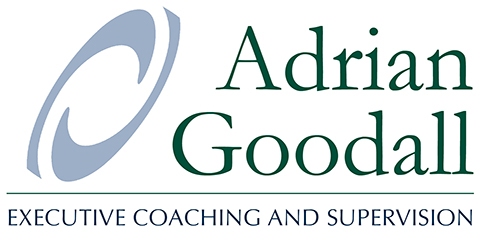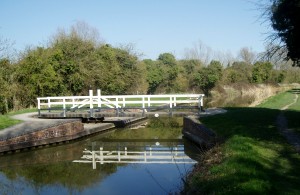Unfinished Business (and season’s greetings!)
It’s around 200AD. Picture the exhausted Mayan calendar-maker’s apprentice: hands, fingers and concentration exhausted from chipping away at hard rock, while the winter solstice party season is fast approaching.
As she applies the finishing touches to the latest section of the great calendar, she glances across to the red sunset, catches the unmistakeable aromas of roast armadillo, guacamole and mulled tequila, and murmers:
“Enough! The next b’ha’tun* is just going to have to wait until next week – surely 1800-odd haab’* into the future is OK for now! Who’s going to be around then anyway?!”
Little does she know that the whole calendar-making department is going to be made redundant (and ritually sacrificed) immediately after the solstice celebrations due to the ongoing Mayan government cost-cutting exercise. Nor that, in December 2012, some folk might interpret this interrupted ‘end’ of the calendar as signalling the end of days!
And so to today. As we hurry around ticking off our ‘things to do’ before the Xmas holiday, there’s bound to be plenty of unfinished business left over for the New Year.
The world isn’t going to end on Friday, so we can prepare for a holiday – I hope yours is merry and warm in the company of your loved ones.
And we can plan ahead too. As life carries on into 2013, what would you like to have happen? How will you choose to be, and to what do you need to pay attention to help make that happen?
Humanity has plenty of unfinished business – let’s all play our part in making the next b’ha’tun a good one!
With very best wishes and thanks for your friendship, collaboration, business, time and support over the last year,
Adrian
* B’ha’tun = c.394 years Haab’ = 1 year (source Wikipedia)
When you’ve lost your job and are looking for a way forward
As job cuts continue to hit the financial and professional services sector* with the worsening eurozone storm, here are some thoughts about what you can do, and how you can be if you lose your job (or know someone who has).
Option 1 (which you’ve probably heard a few times by now!): Keep Calm, (put it in perspective) and Carry On. You can sort this out. It’s happened to many before you – the vast majority have been just fine – and for some it will have been a ‘blessing in disguise’ as they move onto a new role. That could be you too. Obviously you’ll be dusting off your CV, looking at your network of contacts and headhunters, keeping in touch with news and ideas in your sector and being ‘open for business’ by 8.30am. You didn’t need me to tell you all that, did you? And it’s always best to think about your future from a frame of mind which is as calm, confident and as resilient as you can make it. You’ll make clearer decisions and communicate them better.
The problem is, times are tough – really tough – this time around, especially if you’re used to a gilded life in the City. New jobs are very scarce. So for some, Option 1 just won’t cut the mustard – it’s not at all obvious how to ‘carry on’. And rather than being calm and resilient, you could be experiencing a cold fog of doubt, humiliation, anger, a visceral fear gnawing at your confidence, paralysing your usual ability to get things sorted. Your very identity, long defined by your work, your seniority, your power, is under threat. What, where, and who, are you now?
Option 2 is a more ‘strategic’ reassessment: Stop. Observe. Witness. Notice what is happening and what’s different about you and the circumstances you find yourself in. In a fog, any information is valuable. Recognise that this could be a moment of significant change – and it’s up to you what decisions you make about that change. Resilience is about generating ideas and options and lining up your strengths and resources to support yourself as you test them out.
So, reflect upon what’s ‘hurting’ – and what’s not! Where it’s not (maybe a big relief!), that’s a clue that you didn’t care that much, you were bored or the previous role was more of a burden than a pleasure. How much energy, effort or stress has it been costing you to live with that up until now? Are you prepared to take that on again?
Where the job loss is hurting, consider if it’s:
- the job that’s just disappeared (redundancy – hardly your fault); or
- was it that your best capabilities weren’t really matched up to the role?; or
- maybe you know that this time you’ve messed up. Perhaps you’re blaming yourself – that’s only going to help you if you now choose to look at things differently. “I’ve learnt from that. What can I do differently from here?”
Once you’ve checked out what’s happened and where you are right now, then there are many techniques for developing clarity and confidence about the message you want to give to the world about what happens next. Only when you’re clear about what you really want will you be able to demonstrate the commitment and desire that any prospective employer wants to see.
These approaches may involve using some unfamiliar ‘muscles’ – values, beliefs, purpose, finding different perspectives – ‘fluffy stuff’, as your master-of-the-universe alter-ego might have scoffed. Except that this can be very challenging, unfluffy and ultimately very rewarding and exciting work. Just as physical activity can re-energise you, so exercising and changing the complex web of entrenched thoughts, assumptions and behavioural patterns which together make up your experience of the world can release powerful mental and emotional energies.
You can try these on your own or you may feel this is not the time to ‘walk alone’. You can work with trusted friends – or invest in support in the form of a professional coach or counsellor who can facilitate your exploration, challenge you and hold you to task in confidence. It can make a big difference to have the right kind of support for this sort of change-work.
Here are three approaches for starters:
Matching up your energy and your capability
- List the capabilities and strengths that you have demonstrated so far in your life – what might you give yourself an A for? (you can use post-it notes and the kitchen table!)
- List what you’ve really enjoyed doing, ie the things that just thinking about them gives you a ‘lift’. (Different coloured post-its?)
- List areas or things where others have said you’ve made a real impact.
How do these lists match up? What are the patterns you can see around where your energy, focus and skills will have their best effect? (And where your energy may have been wasted in the past?)
Testing out what a future role could feel like
Perhaps you have some sense of the kind of role you would like to have next. If so, and you’re in a place where you feel comfortable to do some ‘exploring’, then try this:
- point (with your finger) to the direction which feels right for the future;
- move (physically) in that direction and stop when you reach a point that represents a year from now;
- and, in that space, imagine that the job is yours, it’s happened, it’s true! What do you notice about what’s happening for you there – your sense of energy, self-belief, commitment – or not? What might other people who are important to you notice about you there? Does that give you any clues about how good that future is for you?
What support do you need? Make a plan!
If that does seem like a good future to be in, and you could be at or close to your best there, then what might you compare that to – it’s like… what? (It could be anything, whatever makes sense to you – no-one else needs to know!). Think about that for a minute or two.
- And for that future to be like that, you need to be like… what? Again, explore the qualities of that.
- And for you to be like that, what support do you need, from others, and from yourself? Make a short list.
- What’s the first step you can take now, towards that future? (Does anything else need to happen first before you do that?) And what’s the second thing you can do? And the third?
Start developing a plan that’s realistic, but also so you can register a sense of progress over the coming days. And as you take those steps, treat yourself to the odd glass of Chablis (or a refreshing run around the park) and remind yourself of those ‘A’s and how you and your life can be in a year’s time, now you’re back on track.
And if at first you don’t succeed, don’t give up!
Walk on, walk on, with hope in your heart,
and you’ll never walk alone.
For more on how coaching can work please take a look through this website or get in touch for a chat. You could even combine coaching with a restorative country walk: See your world more clearly. For the cost of a decent new suit or a fortnight’s family shopping at Waitrose, you could start to make some significant shifts in your thinking.
* Number of City jobs average for 2012 estimated to be 255,000 compared with peak of 354,000 in 2007
[gallery]
Reward and Motivation in a ‘Post-Bonus’ world
To date, it hasn’t been the public opprobrium or even the political pressure that has resulted in sharp cuts to bonuses in the City. It’s economic necessity – reducing the cost base to stay profitable, rebuild equity capital and deal with continuing tough trading conditions and regulatory demands. These are tactical cost-cutting measures so far, but the economic factors driving them aren’t going to change in a hurry. The game has changed and the votes of angry shareholders are starting to count – we may now be in a ‘post-bonus culture’ and a new reward strategy for attracting, retaining, engaging and motivating the talented people needed for the future is required.
When it was just left-wingers, ‘occupiers’, righteous politicians and the odd blogger (see link below) kicking up a fuss, the hubris of the City institutions and other business executives responsible for awarding themselves such prizes seemed undimmed. But now we’re in an environment where everyone is having to take their austerity medicine, and some are gagging on that and hitting back. This is causing increasing political instability across Europe and the rise of extreme or protest voting. Our politicians are sensitive to this. The medicine will still have to be taken but greed will also be hunted down. To repeat, a new reward strategy is required.
John Plender (Financial Times, 21st April), says that investment banking is now “a mature industry that … pays entrepreneurial rewards for erratic and mediocre performance”. The paper also reports, for example, that Goldman Sachs’s Q1 results show revenues and profits very similar to Q1 2006 (Lex, 18th April), highlighting that maturity, despite all the brilliance and hard work of its people (and their huge rewards). How long might its own investment arm tolerate a company which showed no growth over six years whilst rewarding its people like kings? The FT also reports on Citigroup’s shareholder rebellion on their CEO Vikram Pandit’s pay package, and the pressure also being put on Barclays to keep its payments to Bob Diamond in check – we await the outcome of today’s AGM with bated breath.
The chorus is growing. Most recently Andrew Haldane, a member of the Bank of England’s Financial Policy Committee, said: “while bank performance has fallen off a cliff, executive pay remains close to pre-crisis Himalayan heights”, urging reconsideration of the way bankers are paid. And Henry Mintzberg, the renowned academic and thought leader on management and strategy, was quoted recently (The Globe and Mail, September 2011) as saying: “I defy anybody to measure the effect of a single individual, or few individuals, on the overall financial performance of a company”, adding that “we are seized by this sense of greed and narcissism”, and that “companies are communities”. Now here’s a clue for a different strategy.
It has been well researched and documented over the years (Maslow, Herzberg, McClelland and others, most recently Daniel Pink) that the underlying powerful motivating factors for people are the ‘intangibles’ of: the working environment (including behavioural culture); learning and development; a sense of progress, purpose, opportunity and achievement along with trust, recognition and responsibility. Successful communities and organisations like Google, Amazon, Accenture and Goldman Sachs (as I experienced it in the late ‘90s) offer these factors. Cash has been shown to be a surprisingly poor motivator beyond the short term, over and above what’s ‘necessary’ and/or what’s relative. Which is why if your chosen strategy to motivate people is with ever larger amounts of cash, you’ll always be worried that they’ll move to the competitors as soon as the music stops.
And this perhaps explains the apparent resistance to change which has been evident since the tectonic shift of 2008. Following Kegan and Lahey’s ‘Immunity to Change’ model, such resistance doesn’t necessarily reflect outright opposition, but could rather represent blockage from competing commitments – in this case the fear of losing their primary resource and potential source of differentiation, ie talented people in the organisation. So, in order to bring about significant and sustainable change to the whole system, there needs to be leadership from specific organisations to change the orthodoxy and burst the ‘fear factor’ bubble. For example, F&C last week spoke out about ‘high levels of compensation which are not sustainable’ – and others will surely follow suit as they realise they are now quite definitely in a ‘buyers market’ for talent.
Reward strategies always need to fit well with organisational strategy and desired culture and can be a powerful tool to drive change in behaviour and values to reflect a different operating environment, and differentiate the business from its competition. Total reward (according to Armstrong and Brown) includes both remuneration – pay, bonus, pension – and also the intangible benefits identified above.
Which City firms will be the bold leaders in looking to motivate their human resources more imaginatively, creating a different kind of business community to match the new environment? The old masters, or a new generation?
Links:
Andrew Haldane as reported in the Telegraph
Henry Mintzberg in The Globe and Mail
Lloyd Blankfein answers the critics
Wiki on Frederick Herzberg’s Motivation and Hygeine factor theory and McClelland’s Need theory
RSAnimate take on Daniel Pink’s Drive
And a blog from three years ago
Have you ever noticed how where you are affects how you think?
And do the same old problems keep recurring when you’re stuck in the same old place?
When you need to explore and find some extra clarity and energy around critical issues and decisions, it can be a good idea to escape from your usual executive, urban, working environment.
At the same time you’ll be getting yourself physically moving, and breathing in some of the freshest air in England!
Combining a professional, confidential coaching conversation with a restorative walk on the beautiful chalk downs overlooking the Vale of Pewsey stretches both your mind and your body.
This isn’t just a friendly chat with exercise and stunning views. It applies a specific, professional approach within an ancient landscape that includes a range of features from which symbolic meaning and new thinking can emerge.
“It’s a great walk with a charming companion. But that’s not the point. The environment and Adrian make you think. Every time I’ve done this I’ve come back with a clearer idea of where I’m going and what I want to do with the business next. These are some of the most productive hours I spend each year.” RK, Partner, Management Consultancy.
You can choose to work on anything that’s important for you, for example:
- what leadership means for you;
- resetting your ambition and the direction of your career and life;
- challenges of promotion and change;
- how to change and have the impact you want with others;
- off-loading and untangling your thoughts.
As an experienced and accredited executive coach, I like to use highly ‘non-directive’ techniques in this outdoor environment. These help to encourage different thinking, access hidden resources in your mind and soul and shift your sense of what is happening in your life and career – and what could happen.
Natural environments like this have inspired some of the finest of human thinking and creativity: Wordsworth, Keats, Virgil, Nietzsche… You may not end up writing poetry or philosophy, but you will take away new perspectives, ideas and options and, hopefully, feel reinvigorated with a clearer sense of direction and potential.
I live in All Cannings, in Wiltshire, near Devizes, around ninety minutes’ drive from the Hogarth roundabout via the M4. There’s also a train option from Paddington to Pewsey. Most of my work takes place in London, but I aim to make use of my local surroundings on Fridays, and have worked with a number of clients using this approach successfully over recent years.
A typical plan for the day is…
By car:
- 10am: arrive All Cannings
- 10-11am: initial coaching conversation over coffee to understand and draw out the key themes on which you’d like to work;
- 11am-1pm: walk to, up and across the local hills, and back to the village. This 4.5 mile route includes the highest point in Wiltshire, a Neolithic/iron age ‘camp’, the Anglo-Saxon Wansdyke, and the Kennet and Avon Canal. There’ll be plenty of time to discuss, pause and reflect upon the identified themes;
- 1pm-2.30pm: traditional pub lunch at the Kings Arms – our local Wadworths pub – or a lighter option if you want to keep the healthy theme going!;
- Drive back to return home before the rush hour, continuing to reflect on what you’ve discovered and the options you’ve developed.
Or by train (might need to check these times are up to date after Covid changes!):
- 11.06am from Paddington to Pewsey arrives for pick up just after 12.00pm;
- 12.30pm initial conversation over a light lunch;
- 1.30pm-3.30pm walking and coaching on the hills;
- 4.25pm train from Pewsey arriving back in London by 6pm.
According to a study published in 2008 by the University of Warwick and Dartmouth College in the USA, the risk of depression peaks at the age of 44 yrs old.
And, as Carl Jung said: “[people] seek position, marriage, reputation, outward success or money, and remain unhappy .. even when they have attained what they were seeking.”
Finding that you start to doubt yourself and try to ‘rediscover’ your youth in mid-life is often described as a ‘crisis’. What have I achieved? What is there to look forward to?
For many, it’s a bit of a joke – and then embarrassing when you realise that’s exactly what’s happening to you, where you are. And then it’s not a joke, and it can become a cause of strife and depression.
But perhaps it’s absolutely normal for men and women to feel more vulnerable as the ego which has driven us successfully through the first half of life begins to step back and allow our undiscovered, more reflective, ‘Self’ to wake up.
And perhaps we should look at it as a natural and wonderful opportunity to learn, rebalance and grow to fulfill a wider and wiser role in society and for humanity.
For some, there may need to be medical support and counselling or therapy. But for most, life coaching can provide a supportive and confidential opportunity for you to welcome and explore this change, identify resources which can lead you through the storm and, indeed, harness its energy for the second half of your life.
Often it’s helpful to put ourselves in a new space to help us reconnect with our courage and passion. That space can be virtual – created for example in a coaching relationship – or a physical change of scenery, some walking or cycling for example, or a retreat.
It’s important to remember that you can make a choice to move on, accept what’s happening and learn from it, and develop and change, and probably be stronger in many ways.
Last week I enjoyed an excellent lunch with an old school friend. We hadn’t met in over 30 years and it was amazing how quickly and easily we were able to share memories, journeys and hopes. The previous week I’d met up with another group of old business colleagues at a reunion dinner and a similar thing happened. How good it is to reconnect with old friends.
And it got me thinking about what’s happening there – we’re not just connecting with those people but also with something of ourselves, from many years ago. There’s a risk that this can take you back to a ‘memory lane’ you’d rather not go down, but mostly it is a welcome reminder and reintegration of the experiences and resources which have got you to where you are now – and which can help to move you further forward.

We’re also reconnecting with places and environments – the context of your life and work may now be different but there’s a constancy in your ‘mental maps’ from those older places. The juxtaposition can allow new perspectives and nuances of understanding around today’s world to emerge – great for problem solving.
Sometimes we can put ourselves in a new space to help us reconnect with our courage and passion – if some of that’s gone missing and we need it to take on new challenges. That space can be virtual, created for example in a coaching relationship, or a physical change of scenery, or a retreat (like the award-winning Witherden’s Hall).
Reconnection isn’t always comfortable. There’s a balance between the fear of discomfort and the risk of not connecting – what opportunities might be lost – business, knowledge, friendship? Will you sidestep the challenge?

And what determines success? Rather than disappointing with ‘premature expectation’, perhaps we can let what wants to happen, happen. And be prepared to take any opportunities which arise.
Can we put a value on all that’s possible through reconnection? Not really. But I do know that being accepted by others – being worthy of connection – is such a core human need, that it’s hugely powerful, and priceless. And that works both ways.
Go on. Reconnect. You might find resourceful parts of yourself, new ideas from old places, courage, self-worth and opportunities. All pretty useful, whatever business or other challenges you’re taking on.

Two simple questions that can make a difference
Words and phrases have different meanings and associations for different people. This can have a big impact on how effectively you communicate – and understand others.
For example, take just one word: Sharp…
…as a knife. The pleasure of a freshly-sharpened steel blade as it cuts into a bright red, vine-ripened tomato, silently slicing the cool, firm skin as you prepare a summer salad, with spring onions, herbs and olive oil.
Or perhaps a sharp glinting knife in a terrifying night-time fight, or a metaphorical knife cutting costs in a struggling business, or (keeping it topical) a Government department budget.

sharp as a knife – but a real one, or a metaphorical one in the hands of the Exchequor?
Sharp… as an axe, a weapon, or a garden tool for chopping firewood. Or the axe which is swung in a strategic reorganisation. Sharp… as a pin. Painful. Useful for removing splinters, or pinning things down to provide structure, or on a notice board, offering flexibility.

sharp as an axe for winter fuel, or business strategy?
Sharp… as a lemon – eye-watering, and also a tangy freshness. Sharp… as a fish-wife’s tongue, cruel and hurtful, and making things happen. Or as Oscar Wilde’s wit – evanescent words with such influence and power. Or sharp intellect, to spur meaningful debate, or give sharp focus in decision making and strategy.

which metaphor might spring to mind for your audience when you use the word ‘sharp’?
That’s just a few different meanings and metaphors coming from one word. And we’ll all have our own interpretations, images and reactions to that wood-chopping axe, the lashing tongue or the witty riposte. As you can see, it’s pretty easy to have both positive and negative interpretations.
Having a better understanding of what other people mean when they use particular words and metaphors, and helping others to have a better understanding of what you mean, can make a huge difference at work and in life.
This is true whether you’re the leader of a business unit, or organisation, or a team working on a project – or a member of that team, or an individual in a relationship.
Just a couple of simple questions can help you work out what someone means or wants, if you’re prepared to listen. The secret is not to interfere with or immediately interpret how they think of something, but to explore it. For example, if your colleague says “I can’t do that, I’m really busy today”, rather than saying “Yeah I know what you mean, I’m just swamped!” and both of you spiralling into stress mode, you could ask “Oh OK, what kind of busy is that?”. “Well, I’ve got a bunch of emails to deal with and a big meeting this afternoon and I’ve got to prepare for that, and I’ve got to pick up some forms from the Post Office..” – already you have a lot more information about what ‘busy’ means for them – and perhaps how you might be able to help or be valuable to them today, or just wait until tomorrow.

if you’re prepared to listen, just 2 simple questions can give you a lot of information
If they seem OK to continue talking, you could ask “And is there anything else about that big meeting?” – “Well everyone involved in project X is going to be there and I’m supposed to make a presentation” – “Oh, what kind of presentation is that?” – and so on…
And you can use this process in reverse too, for example, preparing for a meeting or presentation where you’re keen to get your message across – use metaphors and develop them with these questions, to help your audience connect even more effectively with what you want them to understand.

help your friends, colleagues, clients to understand your message
The two questions above – what kind of? and is there anything else about? – are the first steps of Clean Language – a technique developed by the late New Zealand psychotherapist, David Grove, and now found in many different areas, including coaching – and even in general conversation if you want to open things up in a more interesting way (though be careful not to be too intrusive!). There’s also another whole, linked, area called Emergent Knowledge. Lots of fascinating and powerful stuff. For me, it’s a core element of my work. There are some links below, if you’d like to find out more.
Thanks for reading, and enjoy your work!
(and what kind of enjoy is that?)
Adrian
Links:
The Clean Collection – Penny Tomkins and James Lawley originally modelled David Grove’s techniques to create Symbolic Modelling.
Clean Coaching – Angela Dunbar works closely with Carol Wilson and provides teleclass-based learning which is where I have done most of my learning in Clean Language and Emergent Knowledge.
Clean Change Company – Wendy Sullivan’s Clean site.
The Powers of Six – Philip Harland and Matthew Hudson’s site focusing on Emergent Knowledge.
X-Ray Listening – Judy Rees’s Clean-focused site.
An article in this month’s Coaching at Work magazine (available if you’re a subscriber)
I’ve always had a soft spot for ants, ever since I used to gaze for hours at their industrious, community efforts to rebuild the nests I had unearthed as a curious young lad. Such a seemingly insignificant creature capable of extraordinary feats.
So I was delighted to see the ant recognised for its amazing strength and extraordinary feet (sic) in the recent Biotechnology and Biological Sciences Research Council science photo competition: click here for the Telegraph’s report.
And human beings are also capable of great feats – astronauts visiting the moon, musicians captivating audiences, soldiers recovering from massive injuries to be an inspiration to others – and well done Amy Williams on her tiny skeleton bobsleigh at the Winter Olympics! What great courage, resolve and skill it must take to beat the world in such a hair-raising way. Click here to go to her website. I notice that Amy has both an ‘ice’ coach and a ‘strength and conditioning’ coach.
We can’t all win the skeleton bob, but we can all find ‘strength and conditioning’ to get us through tough times – and maybe even find greater fulfilment – as the economy continues to swirl ominously, like a dark, snow-laden sky, through 2010 and beyond.

Call me Mr Gloomy but, despite the encouraging spring weather, we’re not out of the economic woods yet.
Post-election, there are going to be some very tough decisions and actions to be taken in the UK. For many, this may be something for our ‘leaders’ to sort out – but I believe we can all choose to be leaders in our own systems. Like ants sorting out the nest.
So where can we find those strengths? Here are six I can think of for starters…
Strength in capabilities, skills and knowledge – from experience and continuing training and studying – be open to learning opportunities which present themselves and tackle some new books!
Strength in self-belief and clarity, to know where you are going and to keep going, to have confidence and deal with your doubts – giving yourself some space to step back and reflect, ask ‘what would I really like to have happen?’ and make a note of (don’t overlook!) all the varied capabilities you already have and things you have already done well.
Strength from others – who is in your ‘systems’? Workplace, friends, family… I was delighted to have the origins of the word ‘conversation’ pointed out to me (and others at the Association for Coaching conference) last week – coming from ‘with’ and ‘change’. And in the feedback system that is any conversation, we are indeed changing together with others. Being truly present when listening to and talking with colleagues, friends and family can be a huge source of energy, affirmation and new ideas.
Strength from external ‘others’ – people who are not in your normal systems – professional advisers, teachers, consultants, counsellors and coaches – like Amy Williams’s strength and conditioning coach – who can bring different perspectives, approaches, processes, thoughts, awareness and supportive challenge to bring out your strengths. Perhaps a bit like jump starting your car battery when it’s run a bit flat…
Strength from ‘failure’ – this is one of the richest sources of learning if you allow yourself to be vulnerable enough to admit that maybe you’re not always right and it isn’t everyone else’s fault! It’s like being prepared to fall off your bike – when you were learning like a child, prepared to make mistakes, learn lessons and adjust what you do accordingly, then you were probably learning at your best! So take care to notice what’s happening and what is your role in that – and how you can change it.
Strength from parts of yourself you might overlook – those irritating ‘gremlins’ that pop up and nag or criticise or undermine you. Bastards! Or are they? How about being courageous and asking those voices what it is they want to have happen? The chances are it’ll be something constructive for you, even if it is uncomfortable. And maybe there is something you can do differently that will take you a step or two towards that. By accepting the legitimacy of the gremlins, there’s a chance you can combine your internal strengths, rather than have them fighting each other!
And what could stymie all of the above? I’ll have a wild guess at… your ego!
Well I hope that’s been a useful read for you. Do let me know what other sources of strength you call on.
Thank you. Enjoy the Spring 🙂





















